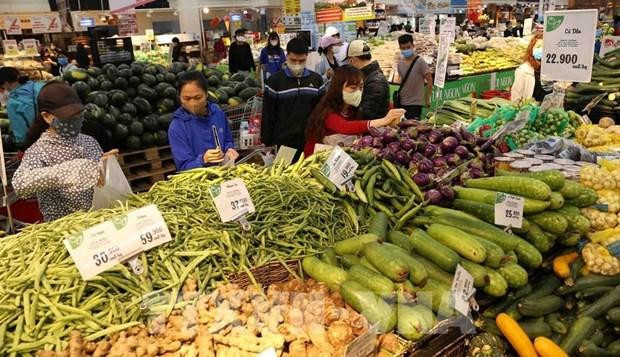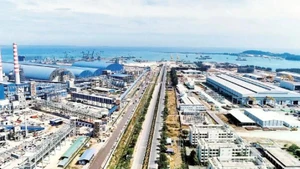In November alone, the index went up 0.39% month-on-month and 4.37% year-on-year mainly due to an increase in house rental fees and the adjustment of petrol prices in the line with global market trends.
Among the 11 groups of consumer goods and services, eight experienced price hikes, while three others saw price drops.
The GSO attributed the eleven-month CPI hike to higher petrol prices which were adjusted 31 times in the reviewed period, resulting in the fact that the retail price of A95 was up 490 VND per litre compared with the end of last year.
On average, domestic petrol prices increased by 31.76% between January and November, compared to the same period last year while gas prices fluctuated in line with changes in the global markets, up 12.76% from a year earlier, it said.
As the COVID-19 pandemic was brought under control, demand for restaurant services has bounced back, leading to a 4.78% rise in eating-out prices in the eleven months. Prices of housing and construction materials also became more expensive, up 2.75% year on year.
An increase of 1.2% in rice prices in the eleven months has resulted in 0.03 percentage point rise in the CPI. Foodstuff prices also grew slightly by 1.32% from the same period last year.
A contributor to the CPI hike was the prices of educational services which went up 0.47% during the period as some provinces and centrally-run cities increased school fees for the 2022-2023 academic year.
The 11-month core inflation went up 2.38% from a year earlier, lower than the CPI growth (3.02%), showing that changes in consumer prices were mainly driven by fluctuations in food, foodstuff, and petrol prices, the GSO noted.
The November core inflation increased 0.43% from last month and 4.81% from the same period last year, the statistics showed.
To deal with the rising inflation pressure, the Government has instructed ministries, agencies and localities to roll out solutions concertedly, helping to ensure stable production and business.
















